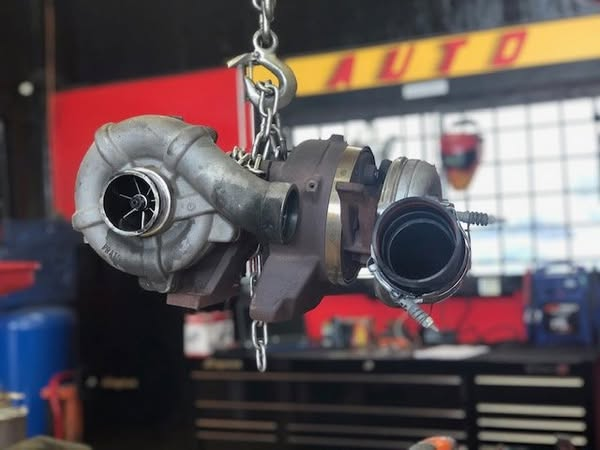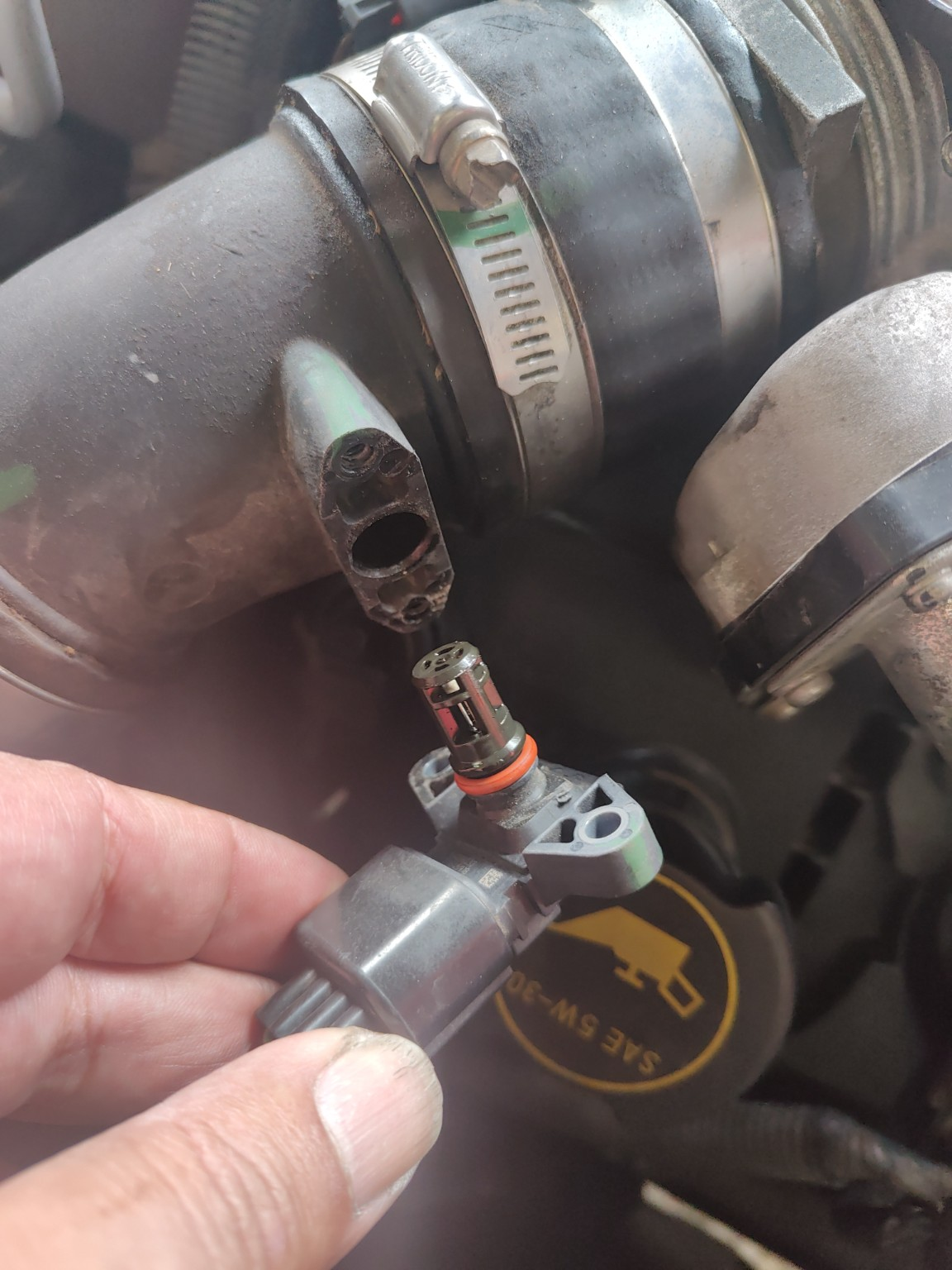
The Real Cause of Ford’s P04DB Code on EcoBoost Engines & How to Fix It
A Complete Master Technician Breakdown By Auto Service Experts – San Antonio, TX
Introduction: Why So Many Ford Owners Struggle With P04DB
The Ford 3.5L EcoBoost is one of the most popular modern engines in America, powering millions of F-150s, Expeditions, Explorers, and Transit models. Yet even with its performance and reliability, one recurring issue has frustrated Ford owners and technicians for years:
P04DB – “Crankcase Vent System Disconnected.”
On paper, it sounds simple. In reality, it’s one of the most commonly misdiagnosed codes on the EcoBoost platform. Owners replace thousands of dollars’ worth of parts, dealerships throw PCV systems at it, and online forums are full of conflicting theories.
At Auto Service Experts in San Antonio, we’ve seen this code repeatedly—even after brand-new OEM PCV valves, hoses, valve covers, gaskets, and turbos have been installed. When the usual repairs didn’t fix it, we dug deeper until we identified a root cause that Ford has not formally addressed.
This article explains:
- Why P04DB returns even when the system is sealed
- What Ford’s ECM is actually detecting
- Why dealerships often miss the real issue
- The hidden mechanical behavior that triggers false P04DB events
- The true underlying cause and the correct fix
This is a complete technical deep dive, written for Ford owners and technicians who want real answers backed by real diagnostic work.
What P04DB Actually Means
P04DB is triggered when the Powertrain Control Module (PCM) detects airflow values that do not match expected crankcase ventilation behavior. It believes the crankcase system is “disconnected,” even when physically everything is connected.
Ford’s official repair path points to:
- PCV valve
- Breather tubes
- Valve cover
- Vacuum leaks
- Turbocharger seals
These components can cause the code — but we’ve diagnosed many EcoBoost engines where all of the above were brand-new from the dealership and the code still returned immediately at cold idle.
That’s the red flag that led us to the real root cause.
The Hidden Pattern Most Shops Miss
Across multiple vehicles (F-150, Expedition, Explorer), the same pattern emerged:
- The code only appeared when the engine was cold
- The code triggered at idle or fast idle (1,100–1,600 RPM)
- The engine experienced a slight intake backfire ripple
- Fuel trims spiked lean on Bank 2 (up to +29%)
- After warm-up, the code would NOT return
- All PCV/valve cover components were new
- The system passed smoke testing
This tells us the PCM is reacting to a temporary, cold-start-only condition — not a physical disconnection.
So what’s changing at cold idle?
THE REAL ROOT CAUSE:
Oil Intrusion Into the Turbo Inlet Pressure Sensor

During cold starts, EcoBoost engines create a unique mix of:
- High crankcase pressure
- Condensed blow-by moisture
- Heavy vacuum pulls
- Turbo seal vapor migration
- Cold enrichment fuel pulses
- Rapid airflow transitions
Together, these conditions lead to micro amounts of oil vapor entering the turbo inlet pressure sensor housing.
Once inside, oil interferes with the sensor’s ability to send accurate voltage values.
When the oil-fouled sensor sends unstable readings, the ECM sees:
- Airflow doesn’t match crankcase ventilation values
- Pressure deltas fall outside the expected map
- The crankcase vent “looks disconnected”
→ P04DB triggers
This explains why the code only appears when cold — because that’s when oil viscosity, airflow, and crankcase dynamics are least stable.
Proof From Live Data: What We Observed
On affected vehicles, we recorded:
Bank 2 LTFT at Idle:
- +25% to +29% (lean)
Turbo Inlet Pressure Sensor Behavior:
- Brief voltage dip during minor intake backfire
- Airflow value drops below expected threshold
- PCM interprets mismatch as a disconnected vent tube
Once warm:
- Voltage stabilizes
- Fuel trims normalize
- Code does NOT return
This behavior occurred even after dealer-installed OEM parts.
Why Dealerships Miss This
For Ford diagnostics and repair, dealerships follow Ford’s pinpoint tests, which do not include:
- Removing and inspecting the turbo inlet pressure sensor
- Checking for oil saturation inside the sensor
- Monitoring voltage behavior during cold idle transitions
- Evaluating real-time trim behavior during fast idle
Since smoke tests pass and PCV components come up clean, many techs fall into the “parts cannon” approach — replacing components until the code seems to go away.
But in these cases, replacing the PCV system only treats the symptom, not the cause.
The Correct Fix (Backed by Real Testing)
Our expert auto diagnostic testing shows the following steps permanently resolve P04DB:
- Inspect turbo inlet pressure sensor for oil
- Clean or replace the sensor
- Reset crankcase and idle learned values
- Verify fuel trims at cold idle
- Confirm stable sensor voltage at 1,100–1,500 RPM
Once the sensor’s responsiveness is restored, the PCM no longer sees false airflow mismatches — and P04DB stops returning.
No unnecessary parts.
No guessing.
No wasted money.
Why This Matters to Ford Owners
This issue affects:
- F-150 3.5 EcoBoost
- Expedition 3.5 EcoBoost
- Explorer / Police Interceptor Utility
- Transit EcoBoost models
- Any platform using similar PCV/turbo layout
Many owners have spent hundreds or thousands replacing parts that were never the true cause.
Understanding the real problem protects you from:
- Misdiagnoses
- Repeat repairs
- Unnecessary part replacement
- Dealer confusion
- Long-term drivability problems
Conclusion: When You Want It Fixed Right, Come to the Experts
At Auto Service Experts, we specialize in solving the diagnostic problems dealerships and other shops miss. When we see recurring patterns like P04DB, we don’t guess — we test, analyze, document, and confirm the true cause.
That’s why local shops, fleet operators, and Ford owners from across San Antonio trust us with their most complex issues.
If your Ford continues to trigger P04DB, we can diagnose the real cause and fix it correctly. We also specialize in Ford transmission repair and Ford engine repairs and rebuilds, and Ford diesel engine repair near Stone Oak, Hollywood park, encino park, & timberwood park in San Antonio, TX.
Auto Service Experts – San Antonio’s Advanced Diagnostic Specialists
Address: 13050 San Pedro Ave, San Antonio, TX
Phone: (210) 495-6688
Website: https://autorepairsanantonio.com
Specialties: Advanced Diagnostics • Engine Performance • Turbo Systems • Electrical • AC Repair • ADAS Calibration • Drivability Issues
